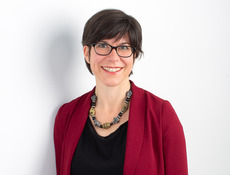Germany already faces a shortage of skilled labor in technical professions and the health sector. This shortage will worsen once the baby boomers – the generation born in the 1950s and 1960s – enter retirement. Extended working lives, increased levels of investment in education and improved conditions for combining family life with career paths are not enough to close the gap. Germany therefore needs foreign skilled labor. To date, most of this labor has come from other EU countries. However, as societies in these countries are themselves facing an inverted population pyramid, the inflow of skilled labor coming to Germany will soon subside. In the long run, Germany needs more skilled labor from non-European countries.
In 2015, a record 1.1 million more people migrated to than out of Germany. Many of these immigrants are refugees originating from non-European countries such as Syria, Iraq and Afghanistan. Yet they are taken in on humanitarian grounds, not as a result of professional qualifications. Many of these refugees are highly educated individuals who, once they have acquired German language skills, can help strengthen the German economy and enrich German society. Other refugees, however, do not have the necessary qualifications. It will take years to train these individuals, and not all of them will successfully complete such training. In addition, there are many skilled workers from non-European countries who are not refugees, but have been deterred from seeking work in Germany because of the complicated nature of immigration regulations.
Overall, relatively few skilled workers from non-European countries comprise the record number of immigrants that have come to Germany. As a result, calls for a new immigration law have grown louder among, for example, SPD and Bündnis 90/Die Grünen Bundestag parliamentary groups.




